Staphylococcus Aureus
-

Impaired neutrophils in autoimmunity
Vanderbilt researchers help answer the question of why patients with autoimmune diseases like lupus are more susceptible to bacterial infections: their neutrophils have impaired antibacterial activity. Read MoreJan 27, 2022
-

VUMC postdoctoral scientist named HHMI Hanna Gray Fellow
Valeria Reyes Ruiz, PhD, a postdoctoral fellow in the Department of Pathology, Microbiology and Immunology, has been selected as a 2020 Hanna Gray Fellow by the Howard Hughes Medical Institute (HHMI). Read MoreFeb 18, 2021
-

Staph’s activation of blood clotting
Staph bacteria may change the factor they use to activate blood clotting — to evade the immune response — a new study suggests. Read MoreJun 9, 2020
-

Imaging host-pathogen battle for metal
An unprecedented view of bacterial products within infected tissues opens new opportunities to explore infection biology and devise novel therapeutic strategies. Read MoreOct 31, 2019
-
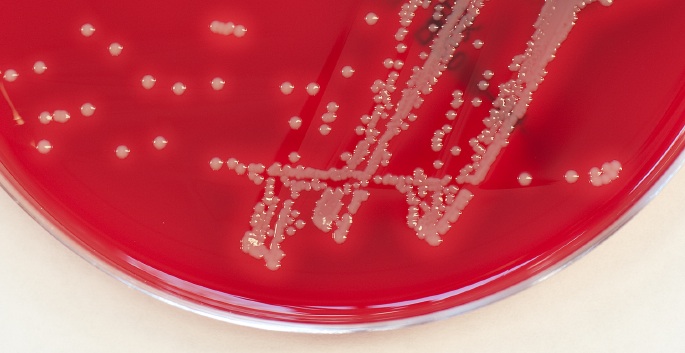
New staph virulence factor
The new factor, an enzyme involved in host-pathogen interactions, may be a viable target for treating staph infections. Read MoreJun 28, 2018
-

New imaging approach offers unprecedented views of staph infection
A new integrated imaging approach makes it possible to probe the molecules involved in invasive infections and can be broadly applied to any health or disease state. Read MoreMar 15, 2018
-
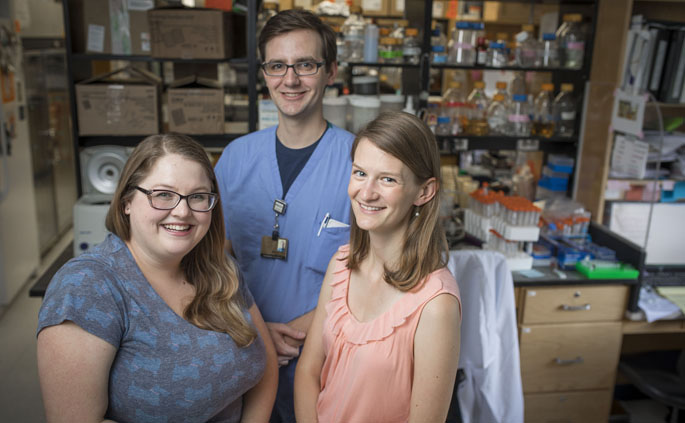
Excess dietary manganese increases risk of staph infection in heart
Too much dietary manganese — an essential trace mineral found in leafy green vegetables, fruits and nuts — promotes infection of the heart by the bacterium Staphylococcus aureus (“staph”). Read MoreSep 21, 2017
-

Investigators use light to kill microbial ‘vampires’
On July 24 Vanderbilt scientist Eric Skaar, Ph.D., MPH, summarized his group’s latest paper in a tweet: “If S. aureus is going to drink our blood like a vampire, let's kill it with sunlight.” Read MoreJul 27, 2017
-

New approach for staph-related skin abscesses explored
New multicenter research that includes Vanderbilt University Medical Center (VUMC) investigators, could change treatment approaches to simple skin abscesses, infections often caused by Staphylococcus aureus (staph) bacteria. Read MoreJul 13, 2017
-

VUMC investigators find pathogens work together to infect host
Pseudomonas aeruginosa and Staphylococcus aureus — two pathogens that frequently co-infect the lungs of patients with cystic fibrosis — appear to cooperate with each other, Vanderbilt investigators have discovered. When pseudomonas is starved for metal by the host, it shuts down the production of factors that would normally kill staph, promoting a co-infection. Read MoreNov 3, 2016
-

Skaar receives American Asthma Foundation award
Eric Skaar, Ph.D., MPH, the Ernest W. Goodpasture Professor of Pathology, has received a Scholar Award from the American Asthma Foundation (AAF). Read MoreAug 6, 2015
-

Physician-scientist is dream job for Vanderbilt’s Cassat
Jim Cassat, M.D., Ph.D., a pediatric infectious disease specialist who joined the Vanderbilt faculty this summer, loves taking care of children with bone infections and doing research to understand the host-pathogen interactions during these invasive infections. Read MoreDec 4, 2014
-

Staph ‘gangs’ share nutrients during infection: study
Antibiotic-resistant bacteria can share resources to cause chronic infections, Vanderbilt investigators have discovered. The findings shed light on a long-standing question in infectious diseases and may inform new treatment strategies. Read MoreOct 16, 2014
-
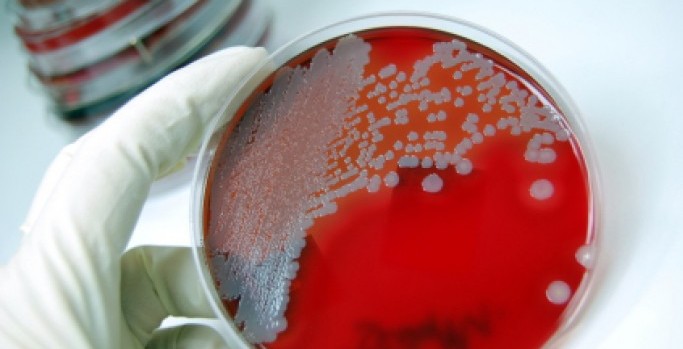
Dismantling staph’s drug resistance
Targeting the enzyme FosB could make antibiotic-resistant staph bacteria sensitive to the antibiotic fosfomycin. Read MoreMar 3, 2014
-
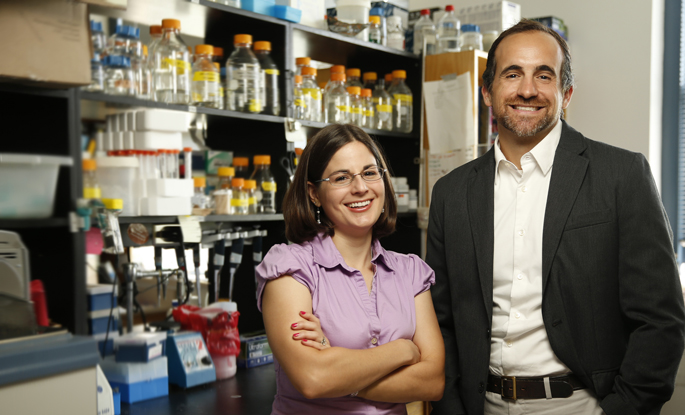
Studies outline new model for staph bone infections
Osteomyelitis, a debilitating bone infection most frequently caused by Staphylococcus aureus (“staph”) bacteria, is particularly challenging to treat. Read MoreJun 20, 2013
-

Antibacterial protein’s molecular workings revealed
Vanderbilt investigators report new insights to the workings of calprotectin, an immune system protein that “starves” bacterial pathogens of the metal nutrients they require. Read MoreFeb 21, 2013
-
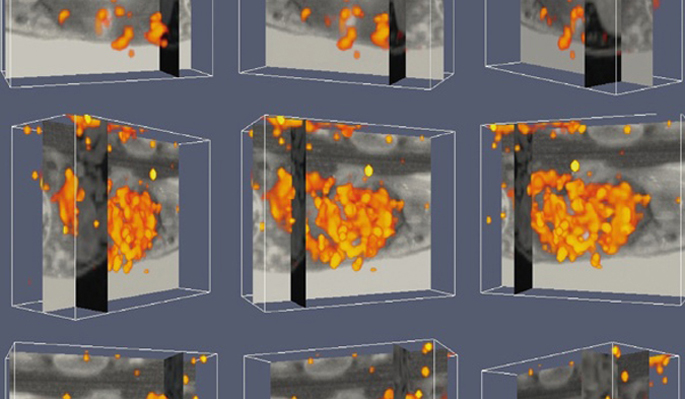
Team creates new view of body’s infection response
A new 3-D view of the body’s response to infection — and the ability to identify proteins involved in the response — could point to novel biomarkers and therapeutic agents for infectious diseases. Read MoreAug 9, 2012
-
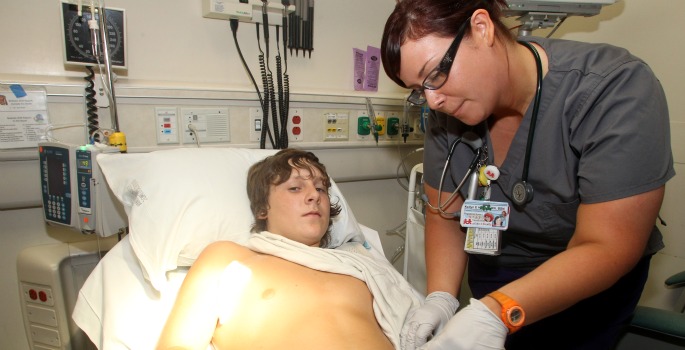
Commonly prescribed antibiotic may not be best for kids’ MRSA
Researchers at Vanderbilt find less commonly prescribed drug is more effective in treating MRSA skin infections in children. Read MoreAug 15, 2011